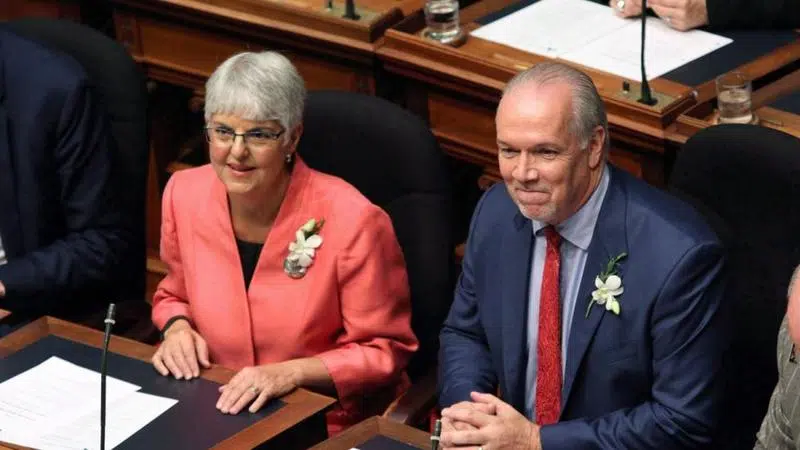
SOUND OFF: It is time for the NDP to focus on rural B.C.
EARLIER THIS MONTH I had the privilege of speaking to tourism operators at the Cariboo Chilcotin Coast Tourism Association conference. We touched on the joys of the region and rural B.C. On experiencing nature, exploring historical sites that give us a broader understanding of our past and enjoying locally sourced products that highlight the flavours of the region. We spoke about a growing tourism industry that is bringing life back to forgotten parts of the province, stimulating local economies, inciting community and regional pride, and bringing work and visitors to the province. I spoke about my deep admiration and respect for the people who make up rural B.C. and how we face unique challenges that separate us from the issues of the Lower Mainland but are in no way any less important.
Rural communities throughout the province ensure a strong, vibrant economy that helps all British Columbians. These communities do not subside on tourism alone. Many are industry towns, anchored by opportunities for mainstay, dependable jobs, however, some of these industries are struggling. As you may know, a forestry crisis has gripped B.C., putting thousands out of work and crippling communities. Those workers have families, own homes, pay taxes, contribute to the community and are a part of the lifeblood of these towns. My colleagues and I pleaded with government to provide aid. We toured the province this summer, meeting with affected workers and suggesting tangible options for the NDP to adopt. Unfortunately, once they finally acted on a solution, it was to provide assistance to rural B.C. at the expense of rural B.C.
Twenty-five million dollars of the NDP’s Forest Relief Program’s funding was taken from the Rural Dividend Fund (RDF), which is used to provide start-up funding for local groups and First Nations to invest in arts and culture, tourism initiatives, and other economic opportunities in their towns. The forestry workers need help, that is very clear, but that money should have come from the government’s contingency fund. Now the RDF has been put on hold for a year. Months of planning and work on project applications are stalled, affecting countless lives. This is simply not acceptable and further punishes rural communities. That is why I have so strongly advocated for the full amount of the Rural Dividend Fund to be re-allocated and I hope my input in Victoria can help get that funding back in the hands of the people who need it in rural B.C. Even under continued pressure from the BC Liberal Caucus, in addition to unanimous endorsement to reinstate the funds by the Union of British Columbia Municipalities, the NDP are not budging, deliberately being inconsiderate of the region and its challenges.
Now, in a decision to clearly add insult to injury, the parameters of that Forest Relief Program aid are proving to be deliberately constrictive for affected workers who seek to access it. As touched on by local media, forestry workers have access to the Retirement Bridging Program, which provides early retirement funding to eligible workers. Although it sounds good on the surface, one needs to look at the fine print, as access to the aid is contingent on not returning to work in B.C.’s forestry sector or any other work as an employee for 18 months unless you are self-employed. This basically means you can have some assistance, but that is it. You can’t go serve food at a diner, work at a gas station or a retail store if you access this assistance. Your livelihood is then at the mercy of this program and whatever amount of aid you receive. How is that fair for workers who had no say in what happened to their industry? Workers need a stepping stone, not a temporary handout.


